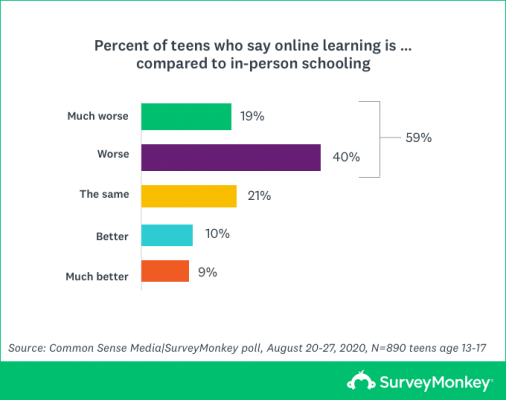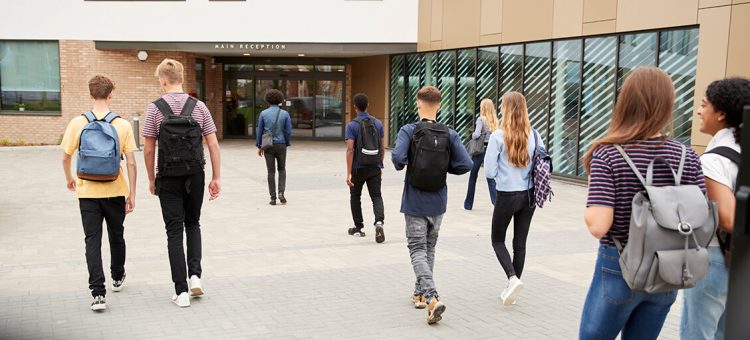A majority of teens (59%) say that online learning is worse than in-person schooling, though just 19% characterize it as “much worse,” according to a new poll from Common Sense Media and SurveyMonkey. The rest of teens are nearly evenly split between those who say online learning is better than in-person schooling (19%) and those who say they are about the same (21%).

Despite the fact that middle school and high school students have grown up online, their negative impressions of remote learning indicate a strong preference for academics to take place in real life rather than virtually. Though they spend much of their free time on their phones, tablets, and computers, their ratings indicate that they prefer to learn from teachers in a classroom rather than on a computer screen.
Girls and boys have nearly identical views on the effectiveness of online learning, and the findings are mostly consistent by race as well. One exception is Black teenagers, just 45% of whom consider online learning to be worse than in-person schooling, and 30% of whom consider it to be better.
Teens select “learning remotely” as the biggest academic challenge they expect to face this year (42%), followed by the “uncertainty of the pandemic” (37%), “emotional upheaval” (32%), “being able to access their teachers” (32%), “unreliable internet” (27%), “access to books and school supplies” (17%), and “access to devices” (11%).
More than six in 10 teens (61%) say they are worried about falling behind academically because of the pandemic, with Hispanic and Asian or other race teens particularly likely to say they are worried about falling behind (79% and 67%, respectively).
Teens miss the social aspects of school
Half or more of teens say they are very or somewhat worried that they will lose connections with friends (56%), miss out on extracurricular non-sports activities (53%), lose opportunities for scholarships (52%), and that the pandemic will hurt their future job or college aspirations (50%). Fewer (38%) are worried about missing out on afterschool sports.
About half of teens (48%) continue to say they feel less connected to their friends than usual, exactly the same as in March, when social distancing practices were first mandated. Similarly, 40% of teens say they feel more lonely than usual, 41% feel about as lonely as usual, and 18% feel less lonely than usual, nearly identical to the responses in March. One change since March: slightly fewer teenagers now say they feel “more connected than usual” to their family, down to 33% from 40% in March.
For full results, click through the interactive toplines below.
Read more about our polling methodology here.



